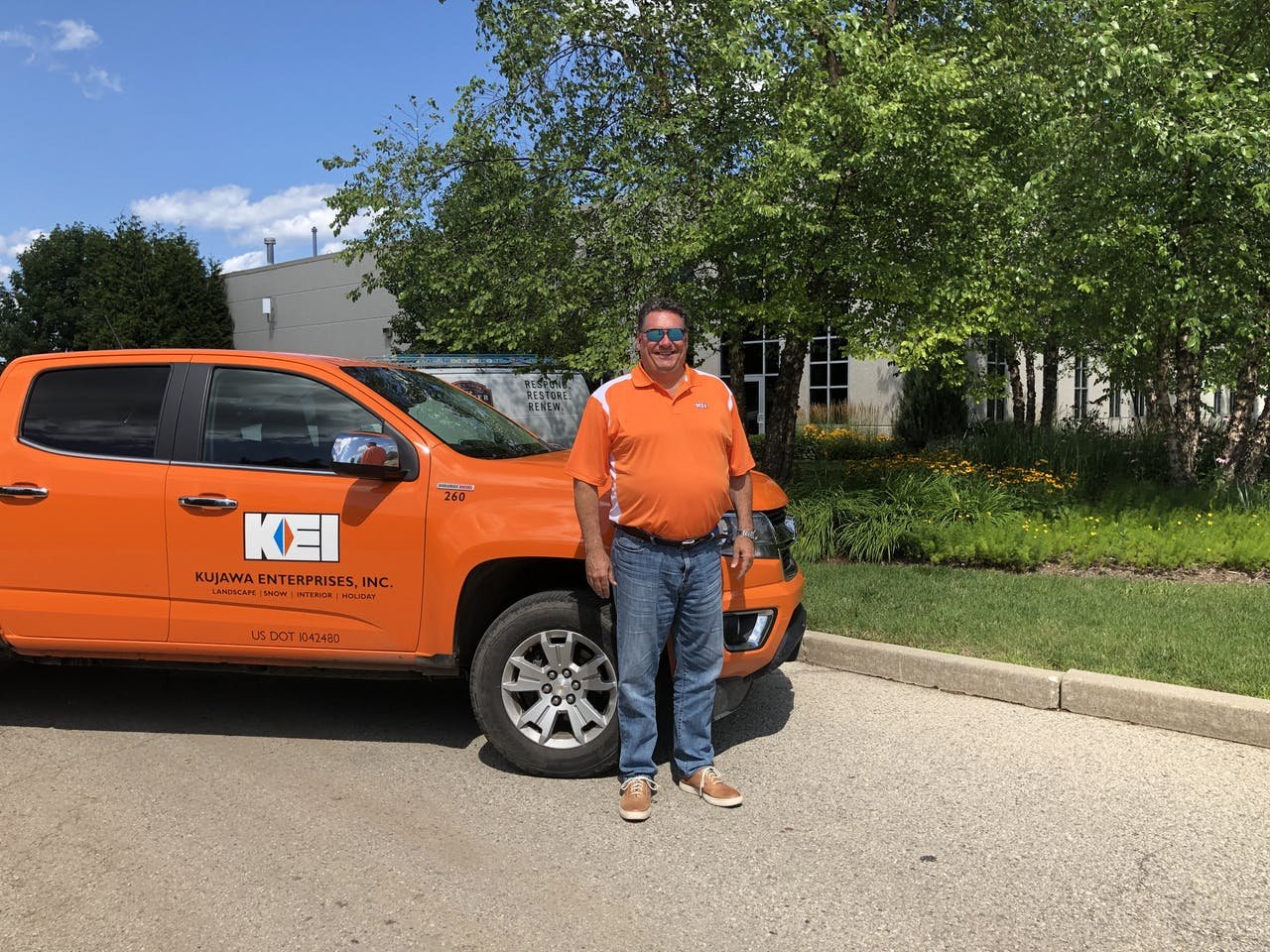The + Company You Keep
KEI President, Chris Kujawa
We recently sat down with Campe + Co. friend Chris Kujawa, owner and president of Kujawa Enterprises Inc. (KEI) to talk about marketing and branding in the world of commercial landscape design and management. If you’ve visited downtown Milwaukee in the last 40 years, you’ve probably seen one of KEI’s signature orange trucks parked in front of one or several city institutions. If you haven’t noticed the KEI fleet yet, you will now. For more than 40 years, Kujawa and his team are tasked with cultivating first impressions for many of our city’s corporate and municipal residents.
KEI bills itself as: “a full service, four-season landscape management contractor providing a wide range of services throughout Southeastern, Northeastern and South Central Wisconsin, including snow and ice management, interior plantscaping and holiday/seasonal décor.” The company is a leader in the Milwaukee market with key clients including Northwestern Mutual, US Bank, Marcus Hotels & Resorts, Hempel Real Estate, Johnson Controls, GE Healthcare, and Milwaukee Downtown.
As a family business founded in 1926, KEI has navigated the Great Depression, World War II, Black Monday, the financial cliff of 2012, and most recently a global pandemic. KEI’s business has evolved over the decades, but through it all, the leadership team was laser-focused on its brand promise: “We believe that our success can only be measured in terms of high client satisfaction and progressive employee development. If we can excel at this, the rest will follow.” Fun fact, KEI hopped into the beer delivery business following prohibition. Clearly, business smarts run in the Kujawa family.
Ideal Customer Profiles Turned Inside Out
Kujawa admits the company’s marketing plan doesn’t look like most. It does not include a big budget line item for traditional advertising. Nor do they have an AOR relationship with an agency. KEI doesn’t even have a dedicated marketing team. But that doesn’t mean the company doesn’t know how to market itself.
Fundamentally, marketing is about understanding the needs of your audience. KEI has this nailed, and the company is structured accordingly. After all, why buy outdoor boards when you own a fleet of them on wheels?
Influence is at the heart of KEI’s marketing strategy. Not every organization has the benefit of nearly 100 years of experience and time to forge deep-rooted relationships. The company’s reputation as a pillar of the community is never taken for granted. And its history and strong existing partnerships direct the company’s trajectory.
Marketers invest a lot of time crafting personas and detailing ideal customer profiles. But how many times have you analyzed and documented your customers’ brand personalities?
A simple yet telling exercise is to create a spreadsheet with fields to capture the following for each customer:
List three adjectives that describe the character of each of your customers’ brands
Which brand personality traits do your customers have in common?
How are they perceived by their target audiences?
Rate estimated brand awareness for each brand
How do the brands stack up when compared to their competition?
When looking at the big picture story your customers tell, you should seek to determine how your brand is impacted. Are your partners helping you grow your business or otherwise achieve your objectives? Do your customers’ brands: elevate yours? Align with your purpose? Influence how your brand is perceived by your prospects?
Strength Begets Strength
Over the course of 100 years, KEI is extremely aware of how its alignment with prestigious brands positively reflects on the perceptions key audiences share regarding the company’s offerings and expertise. KEI represents strength, stability, and excellence. After all, its clients want to be associated with the best, too.
“We have always partnered with companies that are seen as venerable and stable,” says Kujawa. “When we park our orange trucks in front of a client’s property, we know their reputation impacts how our brand is perceived. We are intentional about how we align our brand with our partners. Essentially, we make them look good and they do the same for us.”
Strength is the primary brand personality trait Kujawa seeks when growing his business. Other organizations may seek a customer brand portfolio that exudes accessibility, creativity, authority, empathy, or rebellion. The theory of symbiotic brand power is agnostic and is at play whether you’re paying attention to it or not. Your customers or donors are a reflection of your brand. Period.

